Inside: Help kids be kind on social media and online with these tips and tricks to ensure the social media influence isn’t turning them into cruel kids or kids dealing with cyberbullying.
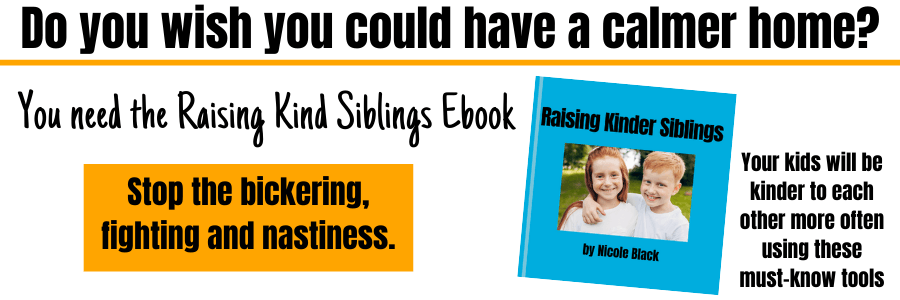
There is so much hate online.
I went down a rabbit hole reading comments on a very positive, uplifiting post, but the vitriol and hate written in the comments down the page shocked me.
And my first instinct was to jump on the bandwagon to fight the trolls and write something sarcastic and passive-aggressive in response.
I even typed out my smart message. That’ll show them.
And then I paused before I hit enter.
Because I had the wherewithal to realize my comment wouldn’t add any value to the social media world. I would just infuriate the trolls further and I would get dragged into an online fight I had no desire to be a part of.
Related: What I know about Cyberbullying from going viral on Facebook
I won’t change the internet trolls’ minds. I won’t get them to stop.
But as an adult with a fully formed brain, I have strong impulse control and self-control.
I can be mad and not say something to retaliate.
I know how to diffuse situations rather than escalate situations.
But our kids don’t have fully formed brains yet and their impulse control and self-control is lacking.
So if our kids are online and being influenced by social media, it’s essential we give them the skills they need to to be kind on social media.
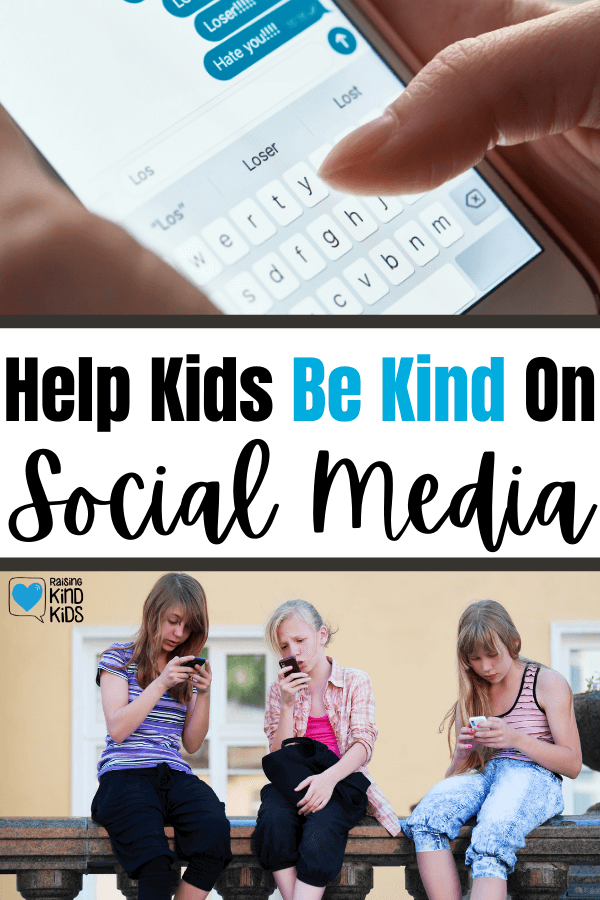
Why it’s important to monitor the Social Media Influence on your kids
It’s fair to say there’s plenty of good that comes out of social media. We’re able to connect with friends and family and share our lives with them even if we’re not living near them.
But, with the good, comes the bad.
Social media is a dumping ground for everyone’s nasty one-liners, comebacks, and bullying behaviors.
Cyberbullying is alive and well and happens to young tweens, teens and adults alike. The internet “trolls” don’t care who you are.
Related: How to keep your kids safe from cyberbullying
And we can keep our kids away from social media. Scientists have done studies that show children under the age of 14 should not have social media accounts because their developing brains can’t handle the addiction to the high they get when people like their post and then the traumatic lows when they feel unloved, outcasted, and uncool on social media.
Social media usage can lead to depression, anxiety, and antisocial behaviors.
Related: The Mental Health Conversations Every Parent Has to Have with Their Kids Right Now
But at some point, our kids are going to be exposed to the land of social media.
The trending platforms may change, but for better or worse, social media is here to stay.
So we have to show kids how to navigate social media and not let it influence them in negative ways.
We have to show them how to engage with others on social media without being cyberbullied and without becoming a cyberbully.
And we have to show them how they can still be kind on social media even if others are not.
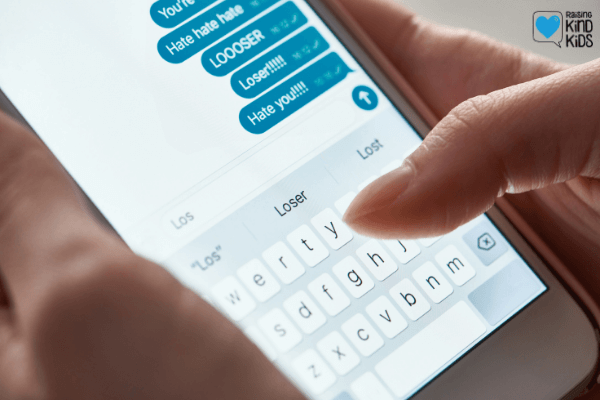
Social Media Tips To Keep our Kids Kind Online
1. Teach them Online Safety
Before we can allow our kids to go online and join any social media we have to teach them online safety. These safety guidelines are true for texting, emailing, and social media.
They need to know to never share photos they don’t want to be shared everywhere, with anyone, for all of eternity.
They need to know to never give out personal information on social media at all (theirs or other people’s).
And they need to know to not talk to or “friend” strangers online if they don’t know them in real life.
2. Monitor Who Your Kids are Interacting with on Social Media
It is widely believed that we are the sum of the 5-6 people we interact with and spend the most time with. These people influence what we think and what we do and what we say, they build up or tear down our self-esteem, and we make decisions that we might not have made if we were surrounded by someone else.
So we have to pay attention to who our kids spend time with… online. Those friends or “friends” are influencing them and their decisions.
So don’t just look at your child’s social media accounts.
Look at their close friends’ social media accounts. What are they saying? What are they writing? Who’s message are they sharing or retweeting or commenting on?
3. Remind them of what a good friend is
When our kids are old enough to be on social media, they’re usually too old to have us pick out their friends for them. (Ahh, I miss those days).
But, we can help guide them to discover if the friends or “friends” they’re spending time with in-person and online are true, good friends.
Fake friends will throw you under a bus, make fun of you, and will never come to your aid if you need it.
Real, true friends will stand up for you even if you’re not there and have your back…in person and online.
We may not be able to tell our kids who to hang out with, but we can influence them to decide if their friend is a good one by giving them this friendship checklist and having them decide for themselves.
P.S. This checklist works for school-aged kids, teens, and adults. (I’ve used it myself).
4. Teach your kids about Cyberbullying
Many kids don’t know the true definition of cyberbullying so they don’t know to look out for it. They don’t know when they are accidentally or purposefully furthering it.
They may not see they’ve set themselves up to be cyberbullied by sharing information they shouldn’t or spending time socially with people who are more likely to cyberbully them.
Talk to your kids about cyberbullying and your absolute intolerance of it before it happens.
Let them know they can always come to you or another trusted adult if they see something online that is inappropriate or cyberbullies someone else.
Related: How to Protect Your Kids from Cyberbullying
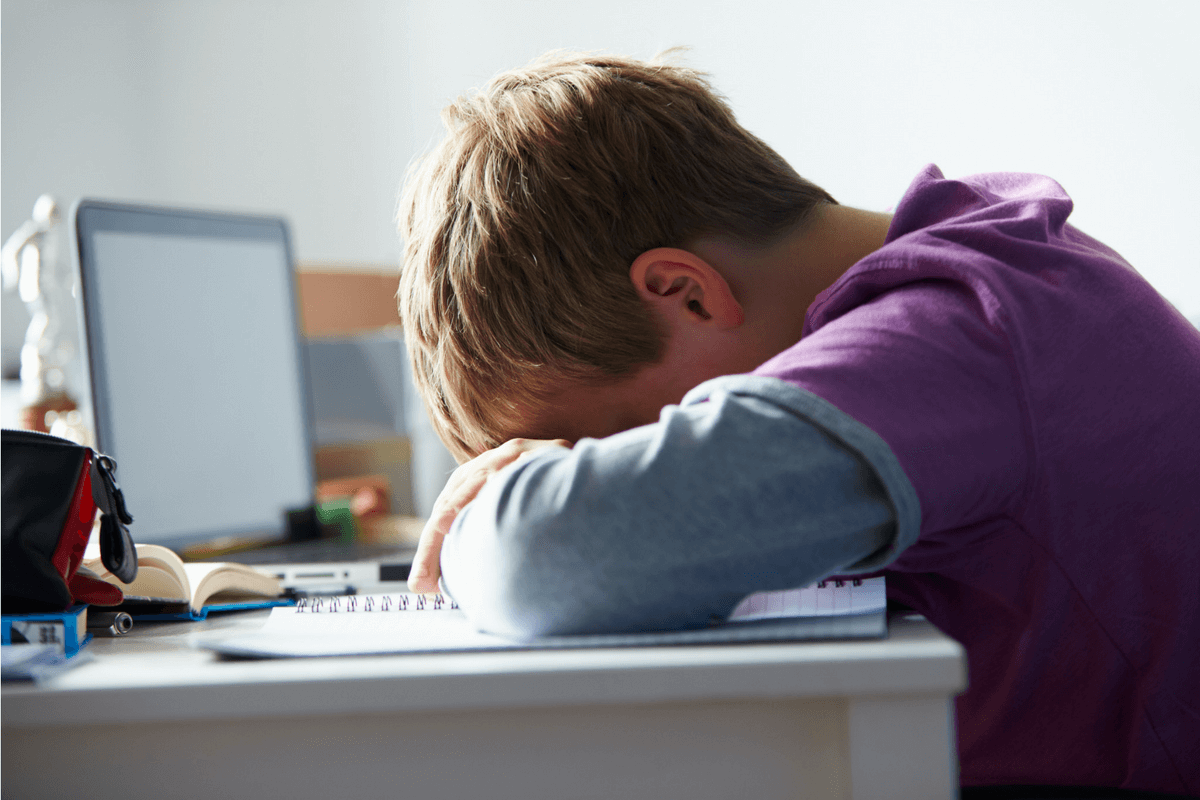
5. Teach them to THINK before they hit enter
We teach our kids to THINK before they speak to their friends and siblings so they’re more thoughtful and considerate.
But this THINK strategy works online too because if you wouldn’t say it in real life to someone’s face, you can’t say it ‘hiding’ behind a screen online.
Before they write a comment or post something, they need to pause and ask themselves:
T- Is it True?
H- Is it Helpful?
I- Is it Inspiring?
N- Is it Necessary?
K- Is it Kind?
Is it necessary to tell someone they’re wrong? Is it inspiring to show everyone you had a birthday party but didn’t invite everyone in your group? Is it helpful to call someone out?
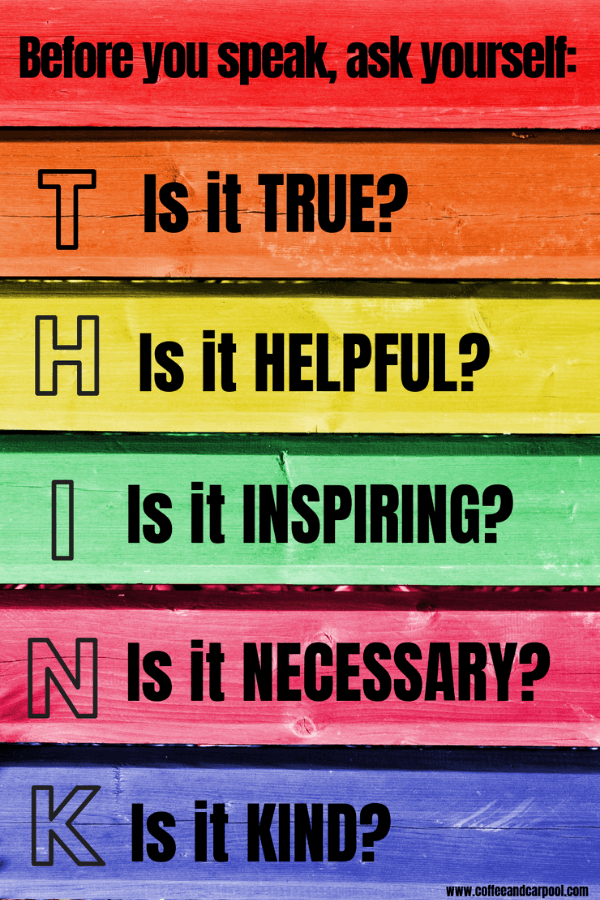
6. Talk to them often about Peer Pressure
Peer pressure is tricky to navigate in real life and online.
We have to teach our kids no matter what anyone says to them, they are the only ones in control of their actions and words.
So we have to remind our kids they must decide for themselves if what they’re being pressured to do, is the right choice for them… before they act or speak.
It’s easy to pass on gossip or forward an embarrassing photo or laugh at someone’s embarrassing moment online. It’s hard to go against what others are doing and stand up for someone.
So we have to help them stand up to peer pressure online so they make decisions that line up with our family values.
7. Remind them to not go for the easy laugh
There’s often a fine line between being funny and being mean.
When we write something online and we’re trying to fit into an online group, it is tempting to make fun of someone or something to get the easy laugh.
But just like in real life, we have to teach our kids how to be funny without being mean.
We don’t make someone else the brunt of the joke for our own benefit if we are kind.
8. Use this Litmus Test: Would you want your Grandma/Auntie/favorite teacher/coach to see your post?
We can teach our kids that before they post, they also have to make sure that it’s grandma suitable.
Because if grandma would be horrified or embarrassed, or angry, other adults will too.
This is essential for our kids to understand the concept of a “digital footprint” even if the app they’re using tells them the content will disappear (Snapshat and “stories” are short lived but screenshots last forever.)
College admissions offices look at social media accounts. Future employers look at social media accounts. People you want to date look at social media accounts.
And it’s okay if their motivation to be kind on social media is linked to avoiding negative effects later on.
Whatever it takes.
Social media isn’t intrinsically evil or toxic or cruel. But we all know it can be. And the users are the ones who make it that way.
So the people in our lives can make social media a little kinder, a lot safer, and definitely more welcoming.
Which will make social media even better for everyone.

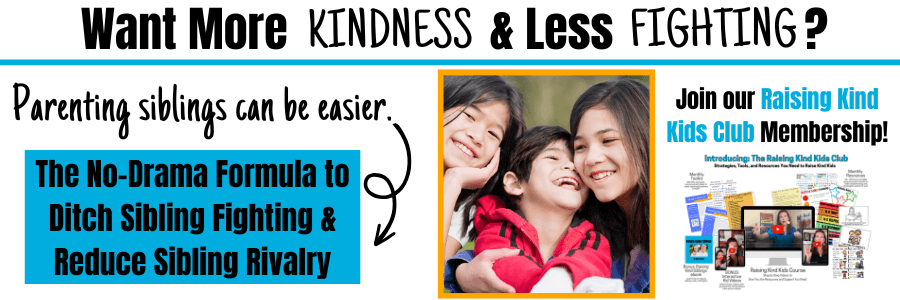
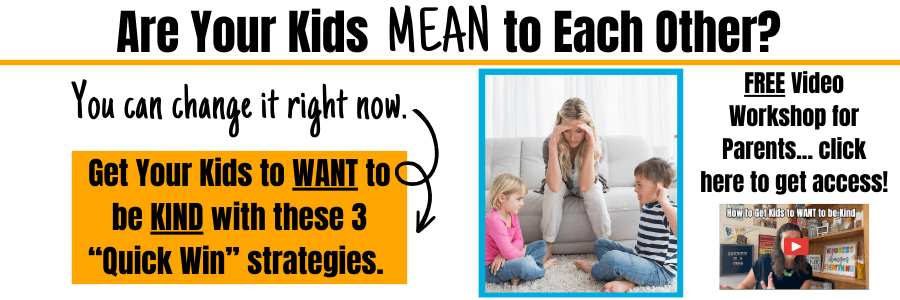
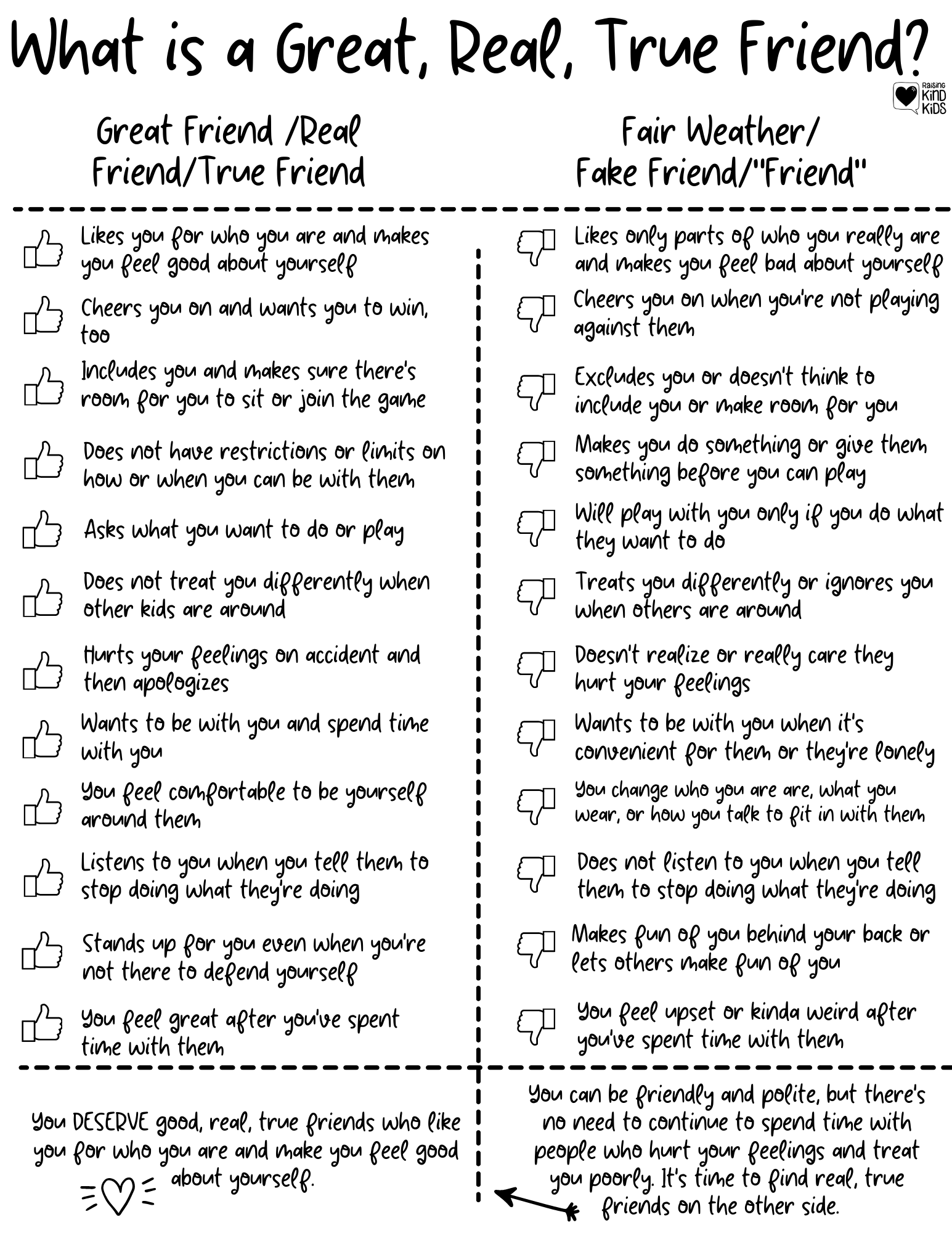
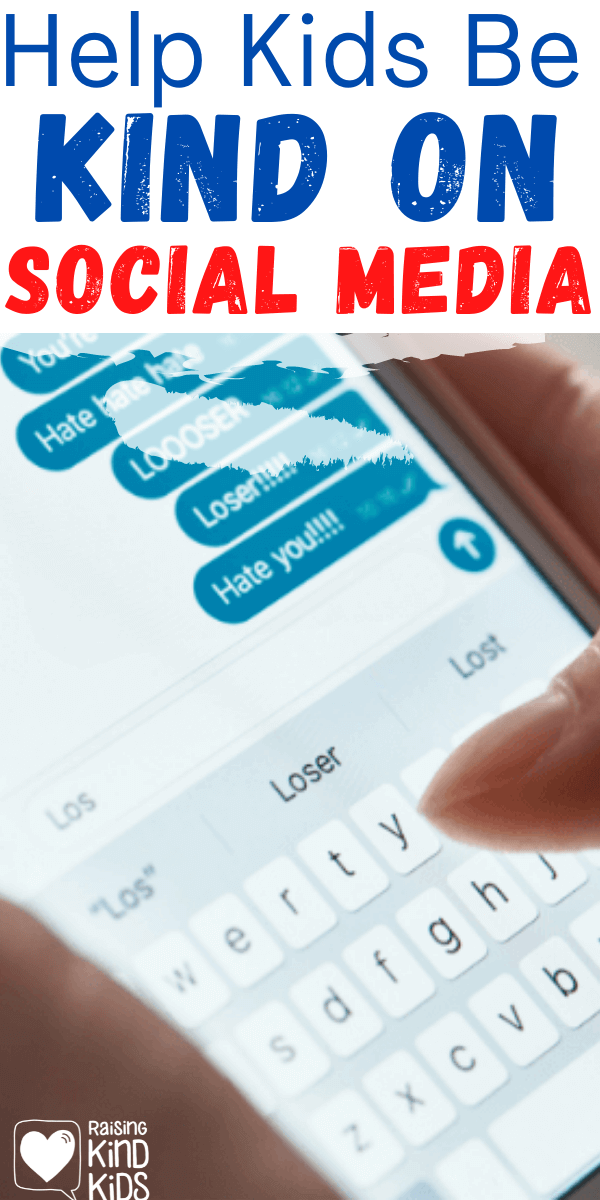
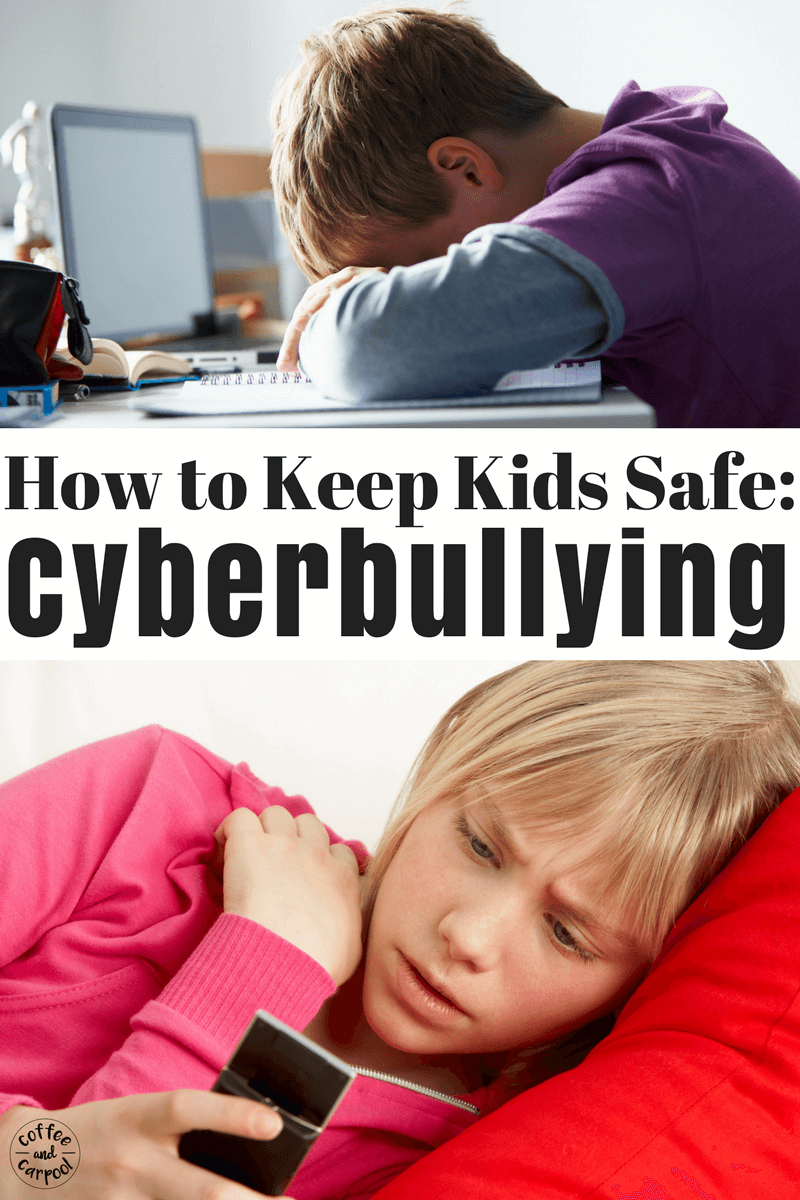
Leave a Reply